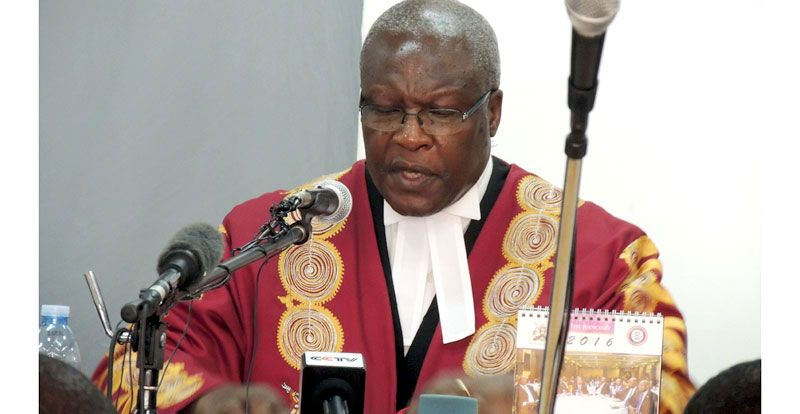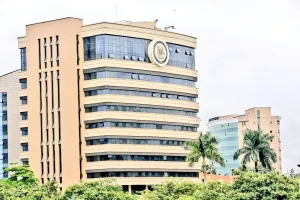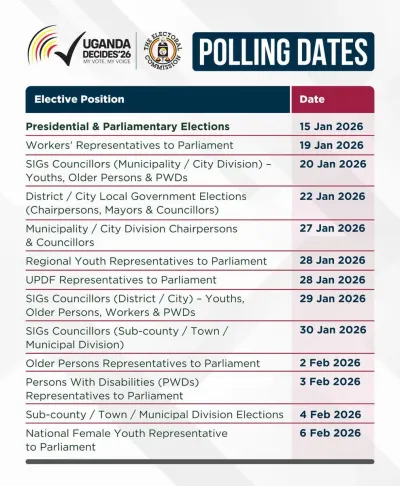
Civil Society Ogarnisations lift lid on corrosive graft in temples of justice
The judiciary has come under scathing criticism from the civil society for allegedly suffocating justice by unnecessarily delaying to try hundreds of cases involving its officers, most of whom are accused of corruption.
The Executive Director of the Anti-Corruption Coalition Uganda (ACCU) Cissy Kagaba raised the matter saying it is a big miscarriage of justice and a terrible scar on the reputation of the judiciary to frustrate aggrieved persons from getting their cases heard in a timely manner.
Kagaba urged government to expeditiously handle those cases that were brought against judicial officers so as to safeguard the public’s trust in the institutions that are supposed to dispense justice.
“It is urgent that the huge backlog of cases against corrupt judicial officials be handled expeditiously or else there is a growing fear that people will begin to lose trust in the courts of law and take the law in their hands, make Kangaroo courts and dispense justice,” warned Kagaba.
Kagaba said their concerns were informed by the Auditor General’s report of 2014/15 which put the backlog of cases against corrupt judicial officials including judges, magistrates, and court clerks at 780 with a majority of them (cases) ranging from failure to refund bail cash and delayed judgements among others.
“I noted in the previous audit report, the Judicial Service Commission has been slow in handling cases brought against judicial officers. At the closure of the previous year the figure for case backlog stood at 749. According to the Commission’s annual report, 2014/2015,” Kagaba quoted the Auditor General’s report in part.
“During the year under review, the Commission registered 137 cases, bringing the total number of cases to 886 of which only 106 cases were cleared. The uncleared cases at the closure of the year stood at 780,” the report adds.
In an interview with this Journalist, Kagaba blamed the Judicial Service Commission (JSC) a government body mandated by law to bring corrupt judicial officials to justice for alleged poor performance characterized by among others.
The Executive Director of the Foundation for Human Rights Initiative (FHRI) Livingstone Ssewanyana told this Newspaper that it is unfortunate for such a backlog of cases to exist in such an important arm of government which he said is expected to be free of blemish.
“It is therefore imperative that those cases are handled as expeditiously as possible if the people’s trust in the judiciary is to be restored,” said Ssewanyana.
But Ssewanyana argues that just discharging the backlog is never good enough for the future of justice in Uganda.
He therefore called for urgent and tougher disciplinary action within the judiciary as a deterrent against the vice “so that judicial officials should be seen as free from corruption in order for them to deserve the right to arbitrate between warring parties many times over cases involving corruption or else the courts of law, known as the temple of justice is soon turning into one of injustice.”
The assistant registrar of the Judicial Service Commission in Charge of the Directorate of planning, inspection and research Julius Mwebembezi agrees with the call but complained of budgetary constraints as a factor behind the pile up of cases.
He complains that instead of Ushs5bn considered as basic for the Commission to execute its mandate, they have for the last five years been receiving only Ushs2.4bn, only raised this financial year to Ushs3.4bn which Mwebembezi claims is still way too little to enable them police all judicial officials across the country.
“It is a tall order. But even within these constraints, we have been able to reduce the number of cases to 340 cases and we shall continue to soldier on,” he says.
Echoing Mwebembezi, Faridah Semyano, one of the Principal legal officers in charge of civic education told this journalist that poor facilitation due to under funding has on many occasions rendered the Commission’s hands too tied to execute its mandate.
“With only two Vehicles in the Directorate, we are sometimes forced to postpone our field operations until other teams in the queue have taken their turns,” says Semyano.
Explaining the extent of the vice in the judiciary, Semyano pointed out that more often, Court clerks dominate in the majority of cases as a result of exploiting their closeness to judicial officials whom she said rarely interface directly with the general public to solicit bribes.
“They (Court Clerks) sometimes solicit bribes in the name of judges and magistrates without their knowledge or involvement and besides, some people are deceived to think that clerks have the capacity to influence judgement owing to their closeness to judicial off officials,” Semyano explains.
But Mwebembezi also attributes the backlog to the part time nature of the members of the commission which he says makes regular sittings for case settlement impossible.
This is coupled with the fact that the Commission has no formulated policy on prioritizing the cases to be handled which has caused some cases to remain unheard over the years according to the AG’s findings.
Comparing JSC to other Commissions such as the Education Service Commission and the Public Service Commission whose members serve on a permanent basis, Mwebembezi points out that its commissioners serve just two days a week.
He also laments the delay that has always characterized the replacement of the members of the Commission each time their term of office expires.
“We were optimistic that this time round the appointment of new Commission will take less than a year but by the look of things, its likely to be another year yet again,” Mwebembezi said.
The term of office for the last Commission under the chairmanship of the justice James Ogoola expired last August and has since awaited replacement by the President with the approval of the appointments Committee of Parliament in accordance with the 1995 constitution.















Sunrise reporter
Leave a Comment
Your email address will not be published.